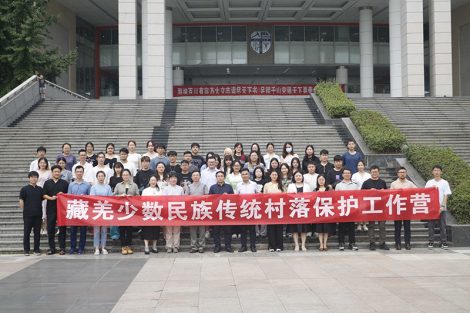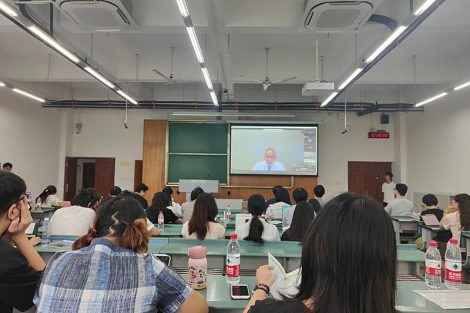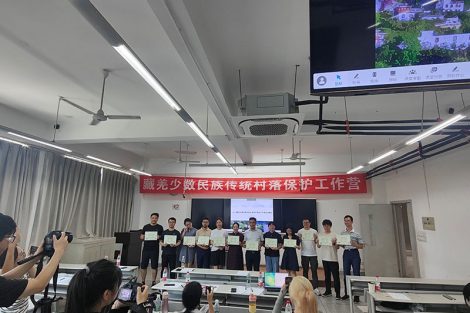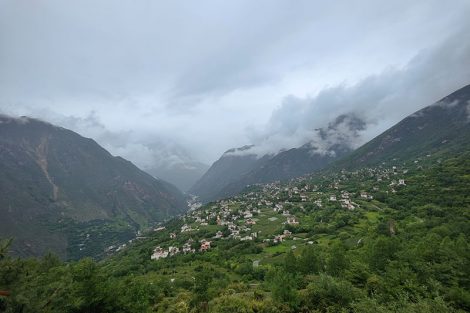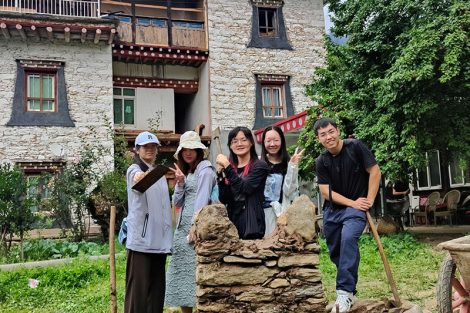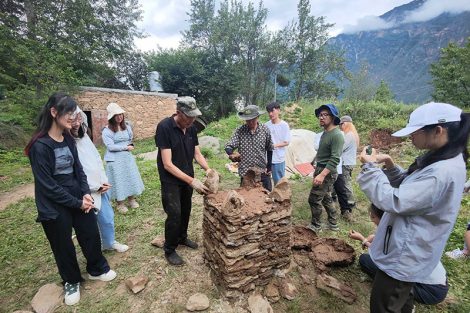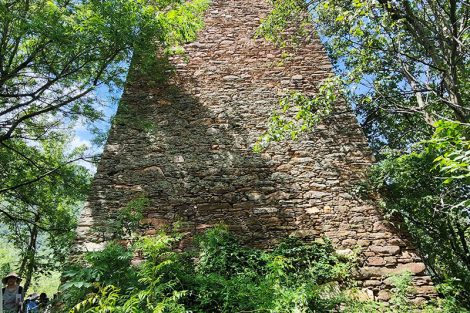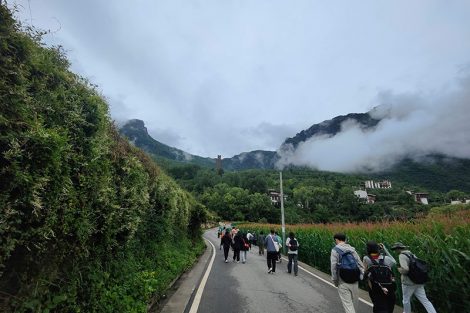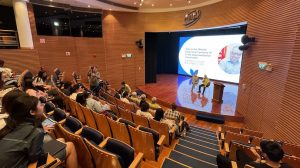A group of five IFTM students from the Bachelor of Science in Cultural and Heritage Management joined a seven-day international work camp organised by the Faculty of Architecture at Southwest Jiaotong University in Danba County, Ganzi Tibetan Autonomous Prefecture, Chengdu, Sichuan Province, China from 10 to 16 July 2023. The field trip was organised under the theme “Preservation of Tibet and Qiang Diaolou (a traditional architecture of a watchtower) and traditional villages,” which was initiated by Professor Hong Tao Liu from Southwest Jiaotong University. It involves heritage experts, scholars, and students from various disciplines, including architecture, cultural and heritage management, construction, landscape architecture, art and design, and tourism management.
Western Sichuan is an important area where Tibetan and Qiang ethnic groups in China intersect. It has a large number of traditional villages of minority groups in the region, which serves as an important heritage resource for the integration of rural revitalization and cultural tourism development. Heritage buildings in the traditional villages are important heritage assets that represent unique place identities. The field trip offers a unique opportunity for value recognition of the ethnic places and their cultures and lets the students realise the importance and possibilities of rural revitalization. The work camp includes thematic seminars, a field survey in Zhong Lu Town (in Danba County), and a workshop on proposing a conservation management plan for the watchtower and the traditional villages in a sustainable way. During the field study, the participants (including experts and students) identified the practical issues and explored the measures for protection and utilisation of traditional villages in order to promote the sustainable development of ethnic areas and preserve cultural heritage.
On the first day, the invited heritage experts presented a series of speeches related to the
preservation and revitalization of traditional villages, who offered cross-disciplinary research and practical insights on the topic that provided the students with a brief understanding of the study context. In the following days, the entire team conducted the field survey in Zhong Lu town with the guidance and supervision of the expert team. Students from IFTM were allocated to different survey groups with students from other universities so as to have cross-disciplinary conversations and knowledge exchange among diverse educational backgrounds. The field survey involves in-depth interviews with the local villagers on their sharing of their place and culture and hands-on experience with demonstrations offered by the local Tibetan intangible cultural heritage item transmitters about the Guo Zhuang (a traditional carpenter craftsmanship used in Tibetan dances). Such experience facilitates the participants with knowledge of the unique techniques to be preserved for safeguarding the relevant heritage items and further enables them to come up with conservation plans in a practical sense.
IFTM students actively participated in this event while utilising their knowledge and skills they learnt in class, such as 3D laser scanning, interviewing and sketching. On the last day, the working groups shared findings through presentations, which provide useful references for both the villagers and concerned parties in undertaking conservation practises at the place in the future. As shared by one of the students, Mr. Tianze Yang, Greens, “this work camp gives me a chance to exchange ideas with students and teachers from different expertise and backgrounds. Also, as a member ofan ethnic minority group, this trip is meaningful to me and inspires me to preserve my own heritage and cultural practises in Yunnan. I also get this chance to talk to the locals and make new friends”.
During this event, students deeply understand the importance of heritage conservation and intangible cultural heritage transmission by getting close to the local people. This international work camp offers an excellent practical experience for IFTM students to broaden their horizons while engaging in a different cultural context and communicating with students and experts from other universities who provide different perspectives with their knowledge and experience.
In addition to specialised collaborative events on cultural and heritage studies, the Cultural and Heritage Management programme provides undergraduates with access to off-campus activities designed to broaden their horizons. Examples include field trips and lectures with industry experts, giving students precious insights to prepare for a career in the field of cultural heritage.



